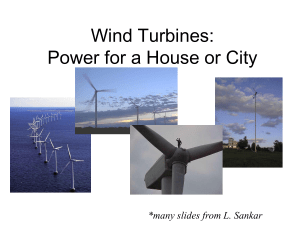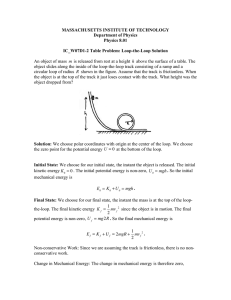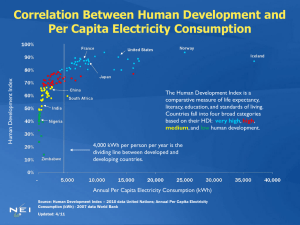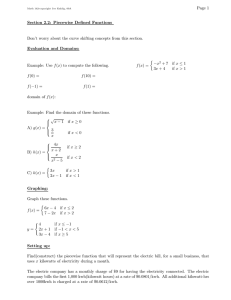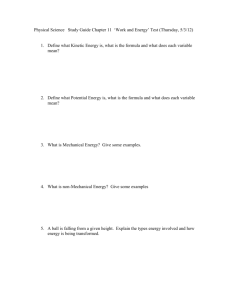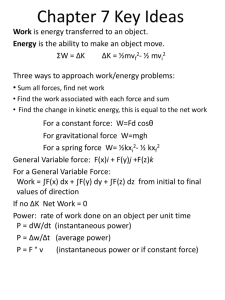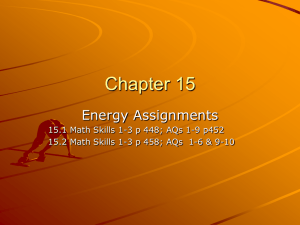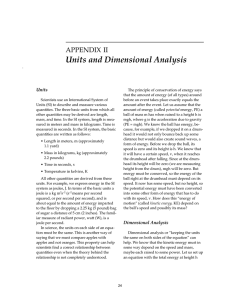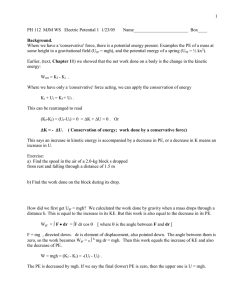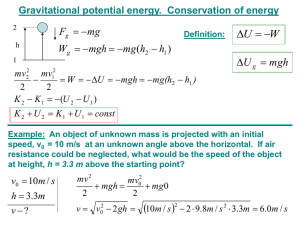UCCS PES/ENSC 2500 name: _________________________ Chapter 11 Hydroelectric Energy
advertisement
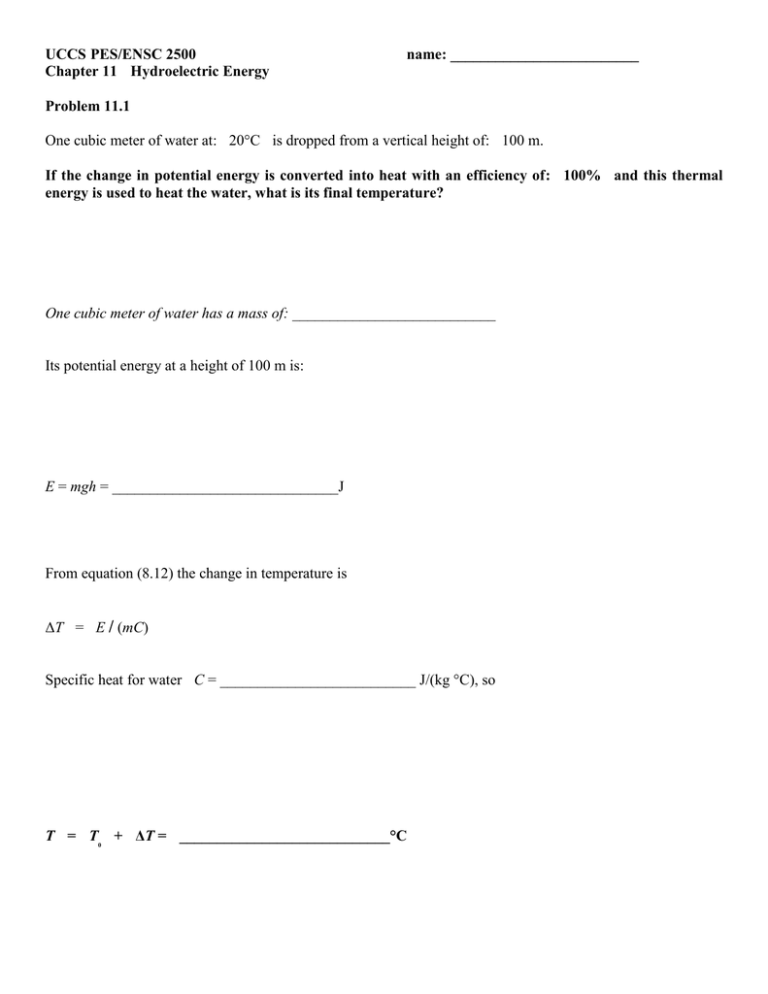
UCCS PES/ENSC 2500 Chapter 11 Hydroelectric Energy name: _________________________ Problem 11.1 One cubic meter of water at: 20°C is dropped from a vertical height of: 100 m. If the change in potential energy is converted into heat with an efficiency of: 100% and this thermal energy is used to heat the water, what is its final temperature? One cubic meter of water has a mass of: ___________________________ Its potential energy at a height of 100 m is: E = mgh = ______________________________J From equation (8.12) the change in temperature is ΔT = E / (mC) Specific heat for water C = __________________________ J/(kg °C), so T = T0 + ΔT = ____________________________°C Problem 11.2 The Three Gorges Dam is rated at: 22.5 GWe maximum output. Its generating efficiency is: 90% and its head is: 81 m. What is the rate of flow (in kg/s) of water through its turbines at maximum output? If the output is: 22.5 GWe then the mechanical energy is: 22.5 GW e/ 0.9 = _______________________GW. E = mgh Power is: P = E / t = mgh / t Solving for: m / t gives: 2 Note that J = kg m /s 2 2 3 so W = kg m /s 2 2 and W s /m = kg/s Problem 11.3 3 Water falls from a head of 100 m at a rate of: 1 m /s, and this energy is converted into electrical energy at an efficiency of: 90%. How many typical single-family homes can this provide with electricity? 4 From Chapter 2 the average electrical need per household is: 1.2 × 10 kWh per year, for an average power requirement over the year of 4 (1.2 × 10 kWh) / (8760 h/y) = _____________________________ kW 3 The energy associated with: 1 m of water at a height of: 100 m is E = mgh = ______________________________ J If this water fall through this distance in: 1 s then the average power generated is P = E / t = _______________________________ kW If this power is converted to electricity with an efficiency of 90%, then the electrical power available is _________________________________ kWe This is sufficient to power: ______________________________ homes with cats. Problem 11.7 A reservoir is: 1 km wide and 10 km long and has an average depth of: 100 m. Every hour, 0.1% of the reservoir's volume drops through a vertical height of: 100 m and passes through turbines to produce electricity with an efficiency of: 92%. What is the electrical power output of this facility? The mass of the water is: m = ___________________________________ kg The potential energy associated with: 0.1% of this water at a height of: 100 m is: E = ___________________________________ J If this passes through a turbine with: 92% efficiency every hour (i.e. 3600 s) then the average power generated would be: P = _________________________________ W
